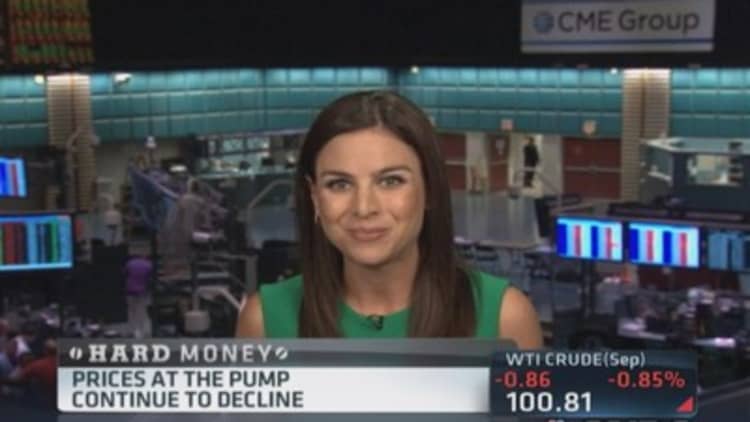Despite the summer heat, commodities have been anything but hot. In July, commodities suffered their worst monthly decline since May 2012, as the widely watched commodities index, the S&P GSCI, erased nearly all of its gains on the year with a 5.3 percent drop.
The big drags on the index were energy and agriculture, which each responded to specific drivers on the supply side of the equation, according to Jodie Gunzberg, global head of commodities at S&P Dow Jones Indices.
In the energy markets, Libya resumed exporting crude, which sent prices across the energy spectrum lower on the increase in supply. Meanwhile, agricultural commodities dropped nearly 9 percent, hitting the lowest level in four years as ideal weather conditions improved the supply outlook.
Read More Oil back on the defensive amid pervasive oversupply fears
The strengthening U.S. dollar probably did not help matters, either. The U.S. Dollar Index, which compares the dollar to a basket of other currencies, rose 2 percent in July. As the dollar increases in value, commodities typically lose value. But that said, not all commodities were in decline—industrial metals like nickel and zinc had a good month, due to rising demand from China.
And despite the slide, Gunzberg said that there aren't many reasons to expect that the weakness will continue.
"The important thing is that inventories didn't build up all of a sudden," Gunzberg told CNBC.com. "It's more of a temporary drop from a good crop and what's happening right now with energy."
Read More Legal fight chills China metal trade after port fraud probe
In addition, the calendar is actually working for commodity bulls.
"There has, historically, been a price increase in late summer, early fall—August, September, October, sometimes even a little bit into early November. Commodities are a little bit cyclical."

Jim Iuorio of TJM Institutional Services says it may be time to buy agricultural commodities, at least.
"I do think that the exceptional weather is probably fully priced in and it looks like prices, particularly in wheat, have bottomed," Iuorio wrote.
But some traders remain bearish.
"There's more downside to come," predicted Rich Ilczyszyn, senior commodities broker with iiTrader. "Hedgies and funds are betting on a stronger dollar and rising rates, the IMF [International Monetary Fund] has downgraded their global growth forecasts, and additional sanctions on Russia will all pile onto the commodity weakness."
—By CNBC's Alex Rosenberg
Watch "Futures Now" Tuesdays and Thursdays at 1 p.m. ET exclusively on FuturesNow.CNBC.com!



